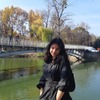Summer is right around the corner, which is the ideal time to get deep with your hobbies…
If you are a high school student or teen writer interested in building your resume and exploring opportunities to strengthen your writing skills, look no further than Shared Worlds.

Image Credit: Gambardella from Pexels
An annual summer program for teen writers interested in speculative fiction (science fiction, fantasy, steampunk, etc.), this program is all about designing and building your own world, something crucial for any kind of creative writing and even essay writing. Based in the beautiful campus of Wofford College in Spartanburg, South Carolina, this is the ultimate dream summer camp for passionate young writers.
Learn more about Shared Worlds at sharedworldscamp.com

Image Credit: Lusina from Pexels
“Featured by The Guardian, The Los Angeles Times, and The Washington Post, Shared Worlds is a unique writing camp that brings together rising 8th-12th grade students from all over the world. Students work with critically acclaimed and bestselling fantasy and science fiction writers to imagine, build, and write their own stories,” their website reads.
The Teen Magazine had the chance to talk with Dr. Joseph Spivey, the Executive Director of Shared Worlds, to chat more about the program and for bits of wisdom and inspiration when it comes to writing speculative fiction.

Image Credit: Rimoldi from Pexels
Let us slide into your dms 🥰
Get notified of top trending articles like this one every week! (we won't spam you)About the Program
Can you tell us about the origins of Shared Worlds and what makes it unique compared to other writing camps?
Dr. Spivey: Shared Worlds is the brainchild of Jeremy Jones. As a high school teacher, Jeremy was looking for new ways to help support student learning.
One year, he formed a book club among several of his students and was blown away by their engagement with the material and with one another. They formed deep bonds over their love for speculative fiction. Jeremy took this initial book club and reimagined it as a residential summer camp for teens who love writing and speculative fiction.
Shared Worlds found a home at Wofford College in Spartanburg, S.C., in 2008. Wofford is a premier liberal arts college that recognizes the value of collaborative experiences like Shared Worlds. I’m a math professor who loves to read fantasy, and I’ve been with Shared Worlds for over 15 years.
At what other college would a math professor feature as an instructor for a creative writing summer camp? Wofford is special that way.

Image Credit: May from Pexels
In Week 1 of the summer camp, students work together in teams of 10 to 12 to create a shared sci fi/fantasy world from scratch. They create all aspects of their world (geography, magic, technology, governments, sentient species, flora and fauna, fashion, etc.). In Week 2, each student writes an original story set in the shared world. A guest author reads and offers feedback on each story near the end of camp.
The collaborative world-building is one thing that makes Shared Worlds unique. I also think that the deep sense of community that we foster sets Shared Worlds apart. Many campers say that Shared Worlds helped them find “their people” for the first time and refer to coming to Shared Worlds as “coming home.”
What is the significance of focusing on speculative fiction? Why is this genre particularly appealing to young writers?
Dr. Spivey: Speculative fiction inspires a particular kind of passion, especially among teens. Speculative fiction allows completely unfettered imagination.
The freedom to create absolutely anything in your world is something that teens are drawn to. Life has so many constraints, but speculative fiction is limited only by your imagination.

Image Credit: SHVETS production from Pexels

Take the Quiz: Which ’90s Movie Character Are You?
Are you ready to travel back to the iconic ’90s and discover which unforgettable movie character matches your personality? Take this quiz to find out!
The Shared Worlds Experience
What does a typical day at Shared Worlds look like for the participants?
Dr. Spivey: A typical day at Shared Worlds includes a mix of presentation and Creative Group Time. In Week 1, the presentations are often given by Wofford faculty and cover topics that help students build their worlds.
For instance, we often have a Wofford biology professor give a presentation on the unifying characteristics of life, which helps students develop more believable flora and fauna in their worlds. Other past topics have included religion, anthropology, history, economics, and cartography. Each talk uses ideas from a subject area to help students build parts of their worlds. In Week 2, the presentations center around the craft of writing, from the elements of a story to writing good dialogue. Students use these presentations to hone their writing craft.
Students also take part in Creative Group Time. This time is for students to be in their groups with their individual instructors brainstorming and developing their worlds and writing their stories in Week 2.
Afternoons and evenings are for structured social activities and downtime with Residential Assistants. World Building is hard work, and campers need breaks to produce their best work!

Image Credit: Rimoldi from Pexels
This year’s guest authors include Roseanne A. Brown, Amanda Foody, Micaiah Johnson, Naz Kutub, and Rosiee Thor. How do these authors contribute to the camp experience?
Dr. Spivey: Our guest authors are chosen because they write amazing stuff for teens, and they want to help the next generation of writers. Each guest author gives a variety of presentations in Week 2 to help students hone their writing craft.
Each guest author is also assigned to one of the world-building groups and is available to answer questions, read drafts, and give advice one-on-one. The guest author reads the story of every student in their group and gives detailed feedback, including the aspects they particularly liked, as well as suggestions for future revisions.
What do you hope students take away from working with established writers?
Dr. Spivey: Each student has the amazing opportunity sit down with a published author and receive feedback on their writing, and to just ask them questions about writing, about being a writer, about whatever. This is huge!
Our guest authors are positive and encouraging. They want to help campers become the best world-builders and writers that they can.

Image Credit: Rimoldi from Pexels
Looking Ahead
Are there any upcoming projects or changes to the program that you're excited about?
Dr. Spivey: I look forward to every year at Shared Worlds. Even after more than 15 years in the program, I am still amazed, horrified, intrigued, curious about, and inspired by the worlds that students create. Each new year brings new students and new worlds.
I am also excited about our newly established endowed fund, which generates money for financial aid for campers who could not otherwise afford Shared Worlds. I am hoping that we can grow this endowed fund over time so that we can provide even more resources to campers.

Image Credit: Rimoldi from Pexels
What advice would you give to teens who are interested in applying but may feel hesitant about their writing skills?
Dr. Spivey: My advice is this: Shared Worlds is a great way to develop your skills, whether you are just starting your writing journey or you are farther along. Shared Worlds staff and students offer a supportive environment to develop writing skills.
Our Guest Authors are friendly, welcoming, encouraging, and insightful. They choose Shared Worlds to help writers just like you!
What’s your favorite part of being involved with Shared Worlds?
Dr. Spivey: Shared Worlds is transformational. My purpose as a math professor is to help effect positive transformations in my students, and my work at Shared Worlds is an extension of that. Every year, I get to help teens find purpose, build community, develop self-confidence, sharpen writing skills, pour themselves into the creation process, and collaborate on challenging tasks.
Over and over again, I hear inspirational stories of past campers, like the young woman who continues to draw strength from her Shared World T-shirt, using it as a token of confidence in college. Or the young man who organized a series of panels on world-building, sharing expertise he gained from Shared Worlds with his community. What we do matters, and I am proud to be a part of it!

Image Credit: Burton from Pexels
Bonus Questions & Advice for Teens
If a teen could only bring one book to inspire their world-building, what book would you recommend and why?
Dr. Spivey: Jeff VanderMeer’s Wonderbook is an amazing resource for a world-builder. It is richly illustrated (illustrations by Jeremy Zerfoss) and includes a step-by-step guide to creating worlds for speculative fiction and writing stories in those worlds. It is fun and features activities to help writers develop and polish their ideas.
What has been your favorite piece of advice from a guest author, and how did it impact your writing?
Dr. Spivey: The most impactful advice from Guest Authors is given in the individual feedback. I have seen many a camper read their feedback nervously, only to start beaming midway through because of the positive feedback they received.
A teen who is proud of their work because a published guest author (someone whose work they may admire) both read and liked that teen’s work! It is an unforgettable experience for a young writer and helps inspire them to continue developing their ideas and sharing them with the world through writing.
What advice would you give to future participants of Shared Worlds?
Dr. Spivey: Share your ideas proudly! I have seen ideas that seemed silly or ridiculous at first blossom into central aspects of worlds.
When you freely give your idea to a group, it can grow and change and adapt and become something truly amazing! Share your ideas proudly!

Image Credit: Rimoldi from Pexels
Keep Up With Shared Worlds
Interested? Learn more about the camp by visiting the website. You can register here.
A huge thank you to Dr. Spivey for this interview!










.jpeg)